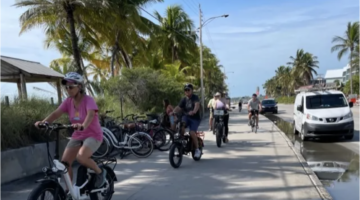Auto Manufacturers Fail to Meet NHTSA Deadline for Replacement Airbags
Highest Risk Vehicles Still Can’t Get Fixed
Many manufacturers have failed to deliver sufficient replacement airbags to vehicles that the National Highway Traffic Safety Administration (NHTSA) deemed at the highest risk of a rupture, despite a March 31 agency deadline to do so. A study of Vehicle Owner Questionnaires from April through July 2016 shows that the agency has received 155 complaints from consumers with vehicles registered in hot and humid states, who attempted to have their recalled driver and passenger-side airbags repaired, only to be turned away by dealers for lack of parts.
The analysis, conducted by Quality Control Systems Corp. for The Safety Institute, and sponsored by the Newsome Melton Law Firm, shows three manufacturers are standouts: Chrysler, Ford and Toyota have garnered 80 percent of the complaints
“This crisis was enabled by a number of different actors, the vehicle manufacturers, the suppliers and NHTSA and now it’s incumbent upon all three to step up to replace the bags as soon as possible rather than blaming consumers for not doing their part,” says Sean Kane, president and founder of The Safety Institute.
In May 2015, NHTSA announced that it was taking the unprecedented step of coordinating a four-year plan of “just-in-time” recalls to replace nearly 69 million defective Takata airbags by 2019. The phased recall strategy was intended to balance scarcities of the replacement parts against the need to make repairs before the inflators explosively rupture.
Despite evidence linking some inflator ruptures to propellant manufacturing and handling control problems, NHTSA determined that the risk of inflator rupture depended on the location of the inflator in the vehicle, its age and its exposure to high absolute humidity for vehicles. Under this root-cause theory, NHTSA gave the highest priority for airbag inflator replacement to model year 2008 or older vehicles which have been registered in Alabama, California, Florida, Georgia, Hawaii, Louisiana, Mississippi, South Carolina, Texas, American Samoa, Guam, the Northern Mariana Islands, Puerto Rico, and the Virgin Islands.
“The findings in this analysis are disturbing,” said Richard Newsome of Newsome Melton law firm and Editor of www.ConsumerWatch.com. “For months now, all we have been hearing is how it’s the consumer’s responsibility to not drive cars that have been recalled, yet here we see evidence that car owners couldn’t get their recalled vehicles fixed even if they wanted to because the manufacturers don’t have the parts to fix them – and these were the vehicles that NHTSA deemed to be highest risk.”
It has become manufacturers’ routine response to injuries or deaths caused by an exploding Takata airbag inflator to cite the precise number of notices that have been sent to the driver before the incident and to re-state the urgent need for all consumers to immediately seek a repair. However, the consumer complaints identified in this study show that many consumers are actually making multiple unsuccessful attempts to obtain recall repairs.
[livemarket market_name="KONK Life LiveMarket" limit=3 category=“” show_signup=0 show_more=0]


No Comment